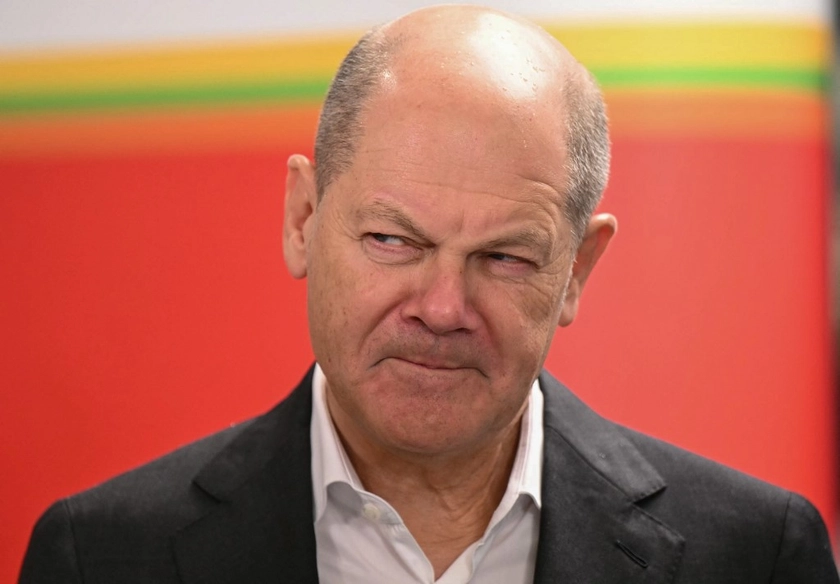German Chancellor Olaf Scholz said Friday it was still too early to discuss sending peacekeeping troops to Ukraine, an opinion echoed by his main rival in this weekend’s elections, Friedrich Merz.
Two days before the vote, Scholz said the question of whether Berlin would be prepared to send German soldiers to support any potential ceasefire “is a debate that we should not be having now”.
JOIN US ON TELEGRAM
Follow our coverage of the war on the @Kyivpost_official.
“We are still a long way from a ceasefire and we do not know whether international troops, UN troops or whatever might play a role there, and whether it will even happen,” Scholz told public broadcaster ZDF.
His latest comments come after US President Donald Trump has rattled Ukraine and its European backers by opening talks with Moscow they fear could end the war on terms that reward Russian President Vladimir Putin.
Scholz stressed that Ukraine would not be “left alone” as the three-year anniversary of Russia’s full-scale invasion approached.
“It can rely on Germany and Europe as a whole now that negotiations are taking place,” he said.
- US ‘more complicated partner’ -
Voters could meanwhile be sure that centre-left Scholz would continue to act “decisively in supporting Ukraine” if he got a mandate to continue as chancellor.
Merz, whose conservatives are strong favourites to win Sunday’s elections, echoed Scholz’s words on Ukraine.
It was “too early to think about” sending German troops to Ukraine, Merz said, also speaking to ZDF.

UK-Funded Poll Shows 63% of Ukrainians Approve of Zelensky
“It could be that there have to be security guarantees for Ukraine. But that is not possible as long as there is war there,” Merz said.
More broadly, Merz warned that Germany may no longer be able to rely on the United States’ military backing as Trump has pushed for Europeans to take more responsibility for their own defence.
“We have to be prepared for the fact that Donald Trump will no longer fully accept the NATO treaty’s promise of assistance,” Merz said with reference to the alliance’s mutual defence clause.
“It is important that the Europeans now really make the greatest efforts to at least be able to defend the European continent with their own strength,” said Merz.
Scholz, who could remain in office for weeks in the event of defeat at the ballot box, said Washington had become a “more complicated partner” now Trump was back in office.
“We have to ensure our own security and that means that we have to ensure that Germany has a strong armed forces, that the European states also manage to work together for their security,” he said.
You can also highlight the text and press Ctrl + Enter











